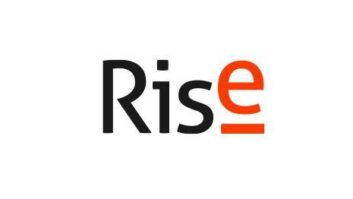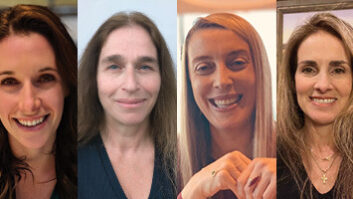Inspiration and aspiration play a key role in shaping self-belief and influencing the trajectory of women’s careers. The phrase “if you can see it, you can be it” encapsulates the idea that having visible role models and examples of success, empowers us all.
At next week’s Rise Awards, we will celebrate women from every department across our industry and champion the contributions they bring.
Diverse teams aren’t just ‘nice to have’. A recent report from Caretta Research and Rise, entitled The Business of Diversity, highlighted that; “Vendors which are more diverse, report higher revenue-per-employee than those that are less diverse.” Diversity, equity, and inclusion need to be a priority within all broadcast sector professions and every organisational function. Role models demonstrate that success is attainable, and this encourages women from outside the sector to consider their transferable skills in areas such as operations, marketing, and sales.
Diverse perspectives
When more women enter an industry, they bring their unique perspectives and experiences, which can lead to more well-rounded and innovative technical solutions. But visible role models are also needed across other business units. There is no question that technical roles are essential for any organisation in the broadcast sector. Engineers, designers, and developers work with the raw ingredients that solve numerous workflow challenges. But creating great technical recipes is just the start. If you’re only talking to a customer about product features, it’s akin to explaining nutritional value and nothing else. So, while the technical team are busy in the kitchen, it’s the sales and marketing teams that handle front-of-house. They work together to create an atmosphere, to ensure that the style of venue aligns with what’s being served and that the service exactly matches the customer profile. They get people to the table. Operations set the tone for the experience and ensure everything runs seamlessly, they manage risk, and deliver higher customer satisfaction.
The most effective teams work symbiotically, creating a strategic feedback loop which informs the long-term roadmap. All this requires knowing the customer and the solution, inside and out. Sales and marketing teams need to be resilient problem solvers who keep asking difficult questions. They balance all technical detail, against economic requirements, role profiles, and industry trends. Then they explore different tactics to attract, engage, and convert prospects, fine-tuning on an ongoing basis. Operations bring significant value by ensuring efficient and effective processes, they optimise resource management and productivity, streamline quality control, and enhance overall customer engagement. This all helps broadcast organisations adapt to change and make data-driven decisions. Ultimately, this combination contributes to a company’s long-term success and competitiveness.
Breaking stereotypes
Broadcast professionals, irrespective of gender, play a crucial role in shaping and promoting brands, identifying customers, understanding solutions, and managing processes to drive revenue growth. But often men in broadcast sales, marketing, and operations are perceived as being more technically minded, regardless of their background. This needs to change. The value of a role should be based on the knowledge and skills an individual brings, not gender associations. So, we need to work together to challenge assumptions in the industry. Men are often associated with qualities like analytical thinking, problem-solving, and technical expertise, while women are more often associated with soft skills. These stereotypes can lead to the perception that men are more technically minded, even when an individual does not conform to these generalisations.
That said, soft skills are also crucial for organisational success. Communication, teamwork, problem-solving, adaptability, and empathy are essential for building relationships, resolving internal conflicts, and navigating customer perspectives. Having a mix of different people is not only a matter of social responsibility and ethical values, but also a strategic advantage that can lead to better decision-making, innovation, and a stronger company reputation. To bring widespread change to the broadcast sector, we need diversity of thought and approach. By creating a fair and welcoming space for women within every business unit, we can attract more female talent and ensure the broadcast sector thrives.
Rise is free to join and open to all, and you can find more information at https://risewib.com/







